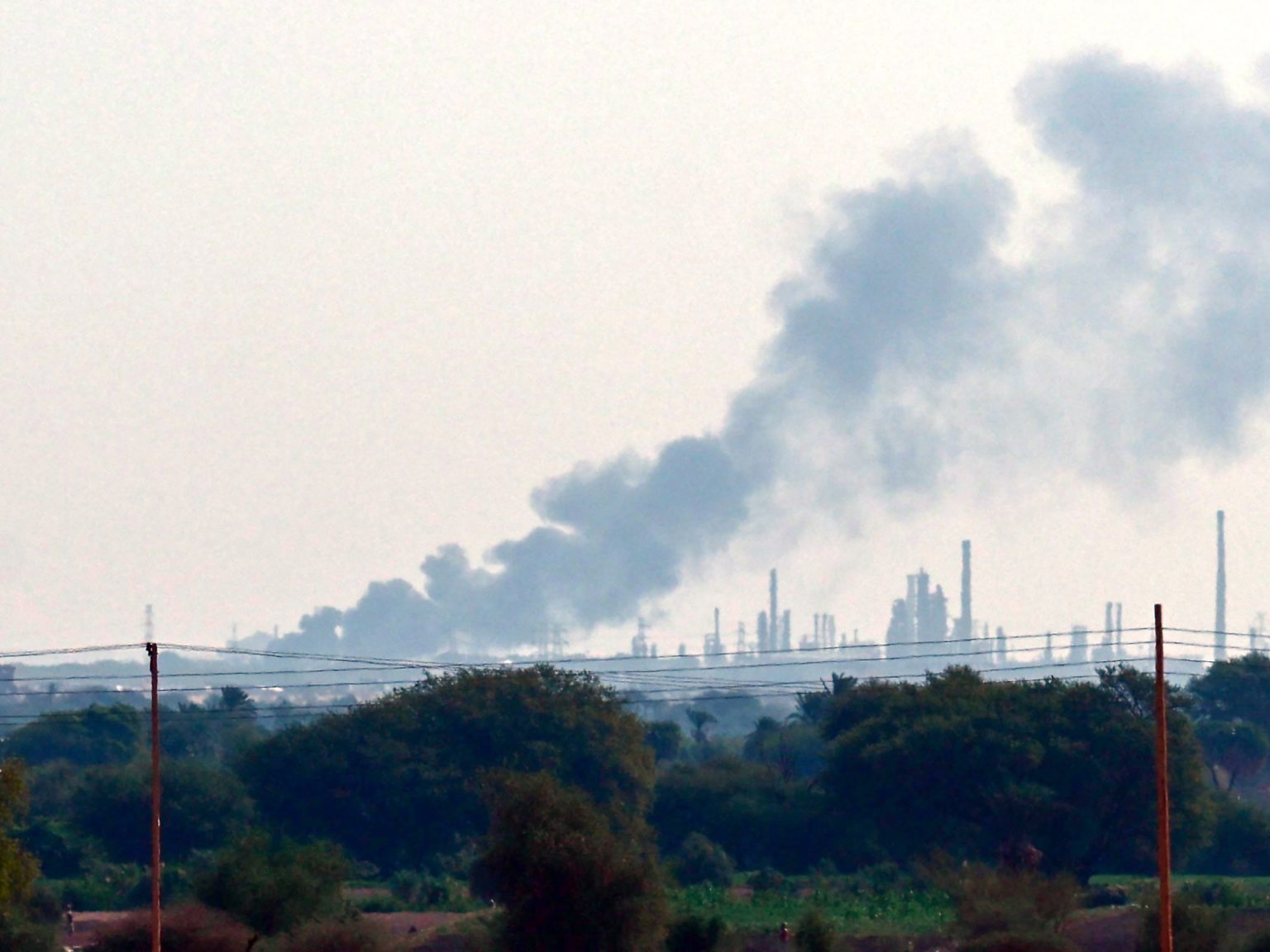The Sudanese conflict, a brutal power struggle between the army and the paramilitary Rapid Support Forces (RSF), continues to escalate, marked by intense fighting and a humanitarian crisis of staggering proportions. Recent clashes have centered around the strategically vital al-Jili oil refinery, north of Khartoum, with the army claiming advances in the area amidst reports of heavy fighting and smoke billowing from the vicinity. While the army seeks to regain control of this key resource, the RSF remains entrenched, highlighting the protracted nature of the conflict and the difficulty in achieving a decisive victory for either side. The fighting exemplifies the broader pattern of the war, characterized by both sides vying for territorial control using heavy weaponry, often with devastating consequences for civilians caught in the crossfire.
The conflict’s ripple effects are being acutely felt in el-Fasher, where tensions boiled over following an RSF ultimatum demanding the army’s withdrawal. The subsequent expiry of the ultimatum triggered air raids by the army on RSF positions, escalating the violence and further destabilizing the region. The ultimatum tactic underscores the RSF’s aggressive posture and its determination to consolidate its power base. The army’s response through air power showcases its reliance on conventional military assets, but also raises concerns about the potential for collateral damage and civilian casualties in densely populated areas. The clashes in el-Fasher, like those around the al-Jili refinery, highlight the fluid and volatile nature of the conflict, where strategic locations become flashpoints for intensified fighting.
The humanitarian fallout of the Sudanese conflict has reached catastrophic levels, with millions displaced and seeking refuge both internally and across borders. Neighboring South Sudan has borne a significant brunt of this exodus, receiving over one million refugees, many of whom are South Sudanese nationals returning after previously fleeing their own country’s civil war. This influx of refugees places an immense strain on South Sudan’s already fragile infrastructure and resources, further exacerbating existing challenges and raising concerns about the long-term stability of the region. The cyclical nature of displacement underscores the interconnectedness of conflicts in the region and the protracted nature of humanitarian crises.
The spillover of the Sudanese conflict into South Sudan has manifested in disturbing ways, with the alleged killings of South Sudanese nationals in Sudan’s Gezira state sparking retaliatory violence and unrest within South Sudan itself. This escalating cycle of violence highlights the fragility of inter-communal relations and the potential for cross-border conflicts to ignite domestic tensions. The South Sudanese government’s decision to suspend access to social media platforms reflects the authorities’ concerns about the inflammatory potential of online content and its role in fueling unrest. However, this move also raises questions about freedom of expression and access to information during a critical period.
The underlying causes of the Sudanese conflict are deeply rooted in the country’s political landscape, with the power struggle between army chief Abdel Fattah al-Burhan and RSF leader Mohamed Hamdan “Hemedti” Dagalo representing a culmination of long-simmering tensions. Both leaders command significant military forces and have vied for influence and control within Sudan’s transitional government. The eruption of open conflict between these two powerful figures has shattered any hopes of a peaceful transition to democratic rule and plunged the country into a devastating civil war. The personal ambitions and political maneuvering of these leaders have come at a tremendous cost to the Sudanese people.
The accusations of war crimes leveled against both the army and the RSF, including the targeting of civilians and indiscriminate shelling of residential areas, paint a grim picture of the conflict’s impact on innocent lives. The documented atrocities underscore the urgent need for accountability and international intervention to protect civilians and bring an end to the violence. The scale of human suffering and the blatant disregard for international humanitarian law demand a concerted effort from the international community to pressure all parties to the conflict to cease hostilities and engage in meaningful dialogue towards a peaceful resolution. The future of Sudan hangs in the balance, and the international community must act decisively to prevent further bloodshed and humanitarian catastrophe.

